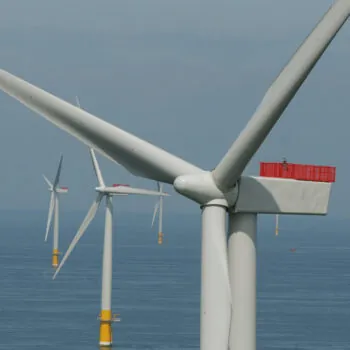The Energy Bill Revolution Begins
Energy Bill Revolution launched, calling on the Government to use the money it gets from carbon tax revenue to deliver warm homes and lower bills for all. If spent on energy efficiency programmes, carbon tax revenue is enough to lift 9 out of 10 households out of fuel poverty. It could also be used to create up to 200,000 jobs and quadruple carbon emissions cuts compared to the Government’s new energy efficiency schemes.
New research reveals risk that fuel poverty could increase 40% by 2016, rising from one in four to one in three households.
Monday 27th February 2012: A new campaign, the Energy Bill Revolution, was launched today, calling on the Government to use the money it gets from carbon tax revenue to make UK homes super-energy efficient.
Groundbreaking analysis undertaken by energy efficiency experts Camco has calculated that on average the Government will raise £4 billion a year in carbon taxes over the next 15 years. They estimate that if this revenue were recycled to households to spend on energy efficiency measures, it would be enough to bring 9 out of 10 households out of fuel poverty. It could also be used to create 200,000 jobs and quadruple carbon emission cuts compared to the Government’s new energy efficiency schemes.
The new research also presents the most up-to-date assessment of the number of households in fuel poverty today and the number of households at risk in the future. It finds that 6.4 million households are now suffering from fuel poverty across the UK, meaning they need to spend more than 10% of their income to keep their homes warm.
The research reveals the risk that fuel poverty could affect 9.1 million households by 2016, the year in which the Government has a target to eliminate fuel poverty. This is a potential rise of 40% which would increase the number of UK households in fuel poverty from one in four to one in three.
The campaign petition is already backed by over 50 leading charities, unions, consumer groups and businesses
More fuel poverty means more people living in cold homes, further damaging the health of vulnerable members of society, including children, older people, and people with disabilities and illnesses.
The research uses the Government’s estimate for the most likely future gas prices. It also takes into account the future impact of the Government’s new energy efficiency policies. It is the most authoritative, independent assessment of how effective they are likely to be yet published. It includes analysis of their flagship Green Deal programme, as well as the new Energy Company Obligation which will provide subsidies for insulation. It shows these programmes will fall short of meeting both climate change and fuel poverty targets unless significantly more financial support from the Government is provided.
If carbon revenue – from the EU Emissions Trading Scheme and Carbon Floor Price – were recycled back to households to spend on energy efficiency measures, it could be used to help all households or used to support the most vulnerable. It could provide, for example, an average grant of £6,500 to make 600,000 fuel poor homes highly energy efficient every year. This would bring down their energy bills each year by £310 and remove 9 out of 10 homes out of fuel poverty within 15 years. The rest would have their homes brought up to the energy efficiency standard of a home built today.
A petition is being launched today at www.energybillrevolution.org to raise public and parliamentary support for the campaign. The campaign petition is already backed by over 50 leading charities, unions, consumer groups and businesses, including the National Children’s Bureau, Save the Children, The Children’s Society, National Pensioners’ Convention, Consumer Focus, The Co-operative Group, USwitch, Kingfisher, IKEA, Asda, Kingspan, National Energy Action, Macmillan Cancer Support, TUC, GMB, NUS, Unite, The Centre for Sustainable Healthcare and Friends of the Earth.
Ed Matthew, Director of Transform UK, the not-for-profit organisation co-ordinating the campaign, said:
“More people die every year in the UK from living in a cold home than die on our roads. Millions more struggle to make ends meet in the face of high energy bills. This is nothing short of a national scandal. The time for excuses and sticking plaster solutions is over. Recycling carbon tax revenue to make homes super energy efficient is a fair and permanent financial solution to end the suffering”.
Paul Monaghan, Head of Social Goals, The Co-operative Group, which co-funded the research said:
“This landmark piece of research shows how the UK can get to grips with fuel poverty and not only keep carbon emissions reducing, but secure increased buy-in from the general public. Right now the elderly and poor suffer the most, but left unchecked this is going to become an issue for everyday families.”
Mike O’Connor, Chief Executive of Consumer Focus, which co-funded the research, said:
"It is a harsh truth that an effective strategy to transform the energy efficiency of our homes and to tackle growing numbers in fuel poverty will need far greater ambition and resources. Billions of pounds will go directly from our energy bills to the Exchequer as part of schemes to cut carbon emissions. That money could reap a double benefit if it was directed to reduce massively our wasteful consumption of energy. We want to transform the cost of energy for households, the economy and the environment. Recycling carbon taxes should be a big part of that transformation."



